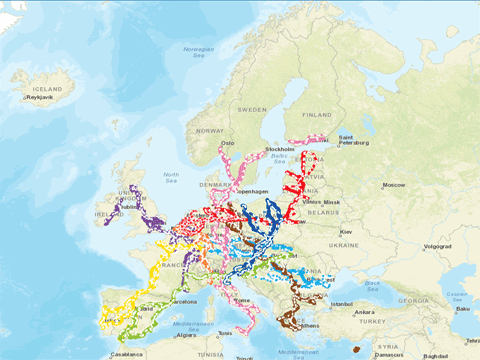The Commission recently approved the continuation of eight major projects to improve railway infrastructure in Poland in 2014-2020. Started in the 2007-2013 period, these projects concern hundreds of kilometres of railway across several Polish regions. These railway sections will be modernised, in line with the objectives of ESI Funds investments to promote sustainable transport, remove bottlenecks in key transport networks and enhance connectivity at EU level, along the corridors of the Trans-E
Poland: ESI Funds invest over €475 million to modernise key railway infrastructures
- 12 July 2016

The Commission recently approved the continuation of eight major projects to improve railway infrastructure in Poland in 2014-2020. Started in the 2007-2013 period, these projects concern hundreds of kilometres of railway across several Polish regions. These railway sections will be modernised, in line with the objectives of ESI Funds investments to promote sustainable transport, remove bottlenecks in key transport networks and enhance connectivity at EU level, along the corridors of the Trans-European Transport (TEN-T) network.
Over €475 million from the Cohesion Fund will be invested in these projects in 2014-2020. Four projects, worth €319.3 million from the Cohesion Fund, will upgrade linkages between the regions of Mazowieckie and Łódzkie. They will modernise existing railway lines, improve safety and increase travel speed, both for passengers and freight traffic. Thanks to these projects, connections from and to Warsaw will be improved.
The European Commission will also invest €74.6 million in a project in the region of Wielkopolska, in order to complete the modernisation of a railway section from Czempin to Poznan, part of the Baltic-Adriatic corridor of the TEN-T network. Railway lines running through the region of Pomorskie, also part of the Baltic-Adriatic corridor, will be improved thanks to three projects worth €81.5 million. These investments will notably upgrade the connections to the cities of Gdansk, including to the port of Gdansk, and Gdynia, thus contributing to less traffic congestion in these urban areas.
More information on ESI Funds investments in Poland is available on the Open Data Platform and in this factsheet
